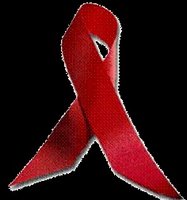Combating HIV/AIDS in Bangladesh: Guest writer Mohammad Khairul Alam
The following is an article written by Mohammad Khairul Alam of Bangladesh for inclusion in the International Carnival of Pozitivities (ICP). Please welcome him and his work about HIV/AIDS in his home country.
Ron
HIV/AIDS epidemic is described as the worst difficulty in the history of health. In fact, human beings have been having great problems since time immemorial but there had never been the worst complexity like AIDS. HIV/AIDS is similar to war but it is worse than war in that when armies fight, it is mostly the men who are killed but HIV/AIDS kills women and children. HIV/AIDS kills people in the prime of their life. HIV/AIDS has no existing cure but there are several ways it can effectively be controlled. After all, common adage has it that prevention is better than cure. If an individual has enough prevention mechanism, there is optimism that the virus can be triumphed upon by the mankind.
Bangladesh is a Muslim countries, Sex is every where not permitted except 15 brothels in Bangladesh, Female Commercial Sex Workers (CSWs) in Bangladesh are generally adolescent and they are more vulnerable to infection as their low status makes them less able to negotiate the use of HIV/AIDS or Sexually Transmitted Diseases (STDs/STI) prevention methods e.g. condoms, also the young age makes them more biologically vulnerable. The destiny of CSWs, in relation to their vulnerability to HIV infection, depends mostly upon safe sex behaviors, with the use of condoms.
The problem of Female Commercial Sex Workers (CSWs) in Bangladesh exists for more than two decade. There are larger numbers of CSWs is operating all over the country, Bangladesh, significantly increases the risk of bridging the high risk groups and moving infection into the general population. Men who frequently visit commercial sex areas and have sex with CSWs and also with their monogamous wives, function as a bridging population and significantly aid the confluence of HIV/STDs into the innocent healthy population.
In generally Bangladesh is a high prevalence country of sexually transmitted diseases, particularly among commercial sex workers. It is estimated about 40% CSWs infected in several STDs/STI. Illicit sex is often considered as the highest risk segment of the population whereby one could get HIV or STD due to the high-risk sex activity itself and the often-additional injurious high-risk behaviors practiced by sex workers e.g. injection drug use (IDU). CSWs are the principal transmitters of HIV in many countries.
Certainly, adolescent girls prostitution is booming in Bangladesh. Adolescent girls engage or are forced into prostitution for trafficking or socio-economic reasons. Rainbow Nari O Shishu Kallyan Foundation carried out a recent field investigation, the research confirmed that adolescent girls’ prostitution is widespread in Bangladesh, although hidden at first sight from foreigners, especially in Dhaka city. Adolescent girls involved in prostitution are to be found in residence homes converted into brothels or in hotels. The majority are aged 15-18.
Injecting drug use (IDU) has been the main route of HIV transmission in Bangladesh. While the transmission through sexual contact is still widely considered a major factor worldwide, but transmission through injection drug use (IDU) is also increasing at an alarming rate. Here the needles through IDU become one of the main factors of transmission. The drug user use drugs illegally. As a result, they do not have access to enough and clean needles. They share the same needles. This passes the virus in several ways: The first way is that the virus gets transmitted through the same needles they share. The second one is that they are influenced by drugs to become unconscious of using safe sex. The third one is the fact that this category of people is said to be having sex frequently and more carelessly with any individual than any other group.
HIV/AIDS would turn into an epidemic in Bangladesh if drug users do not stop sharing needles. A 2002-2003 CARE study found that nearly 40% of Bangladesh drug users use dirty needles; 4% of those were HIV-positive, a figure more than double the 1.7% infection rate reported among drug users in a 2001 study.
In some regions of Sub-Sahara, the impact of HIV/AIDS epidemic, including its social and economic impact, has been far-reaching. People have become impoverished, agricultural and industrial productivity diminished, employment system rampant, education system eroded and health care system and other care providers overburdened.
Reference: CARE, World Bank
Categories: Bangladesh HIV/AIDS HIV AIDS International+Carnival+of+Pozitivities ICP Guest+writer Mohammed+Khairul+Alam IDU CSW








0 Comments:
Post a Comment
<< Home